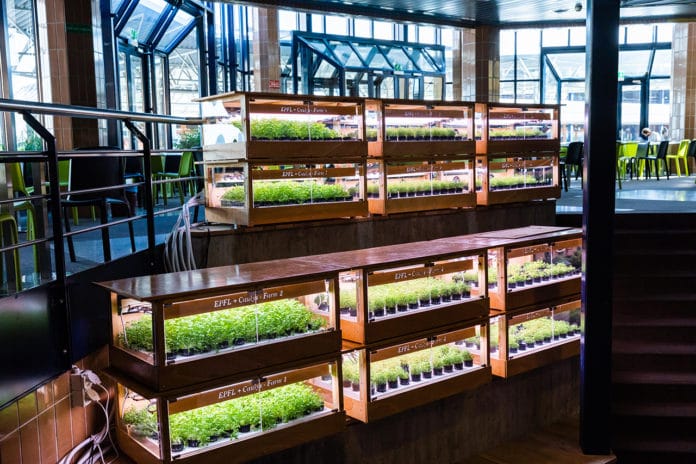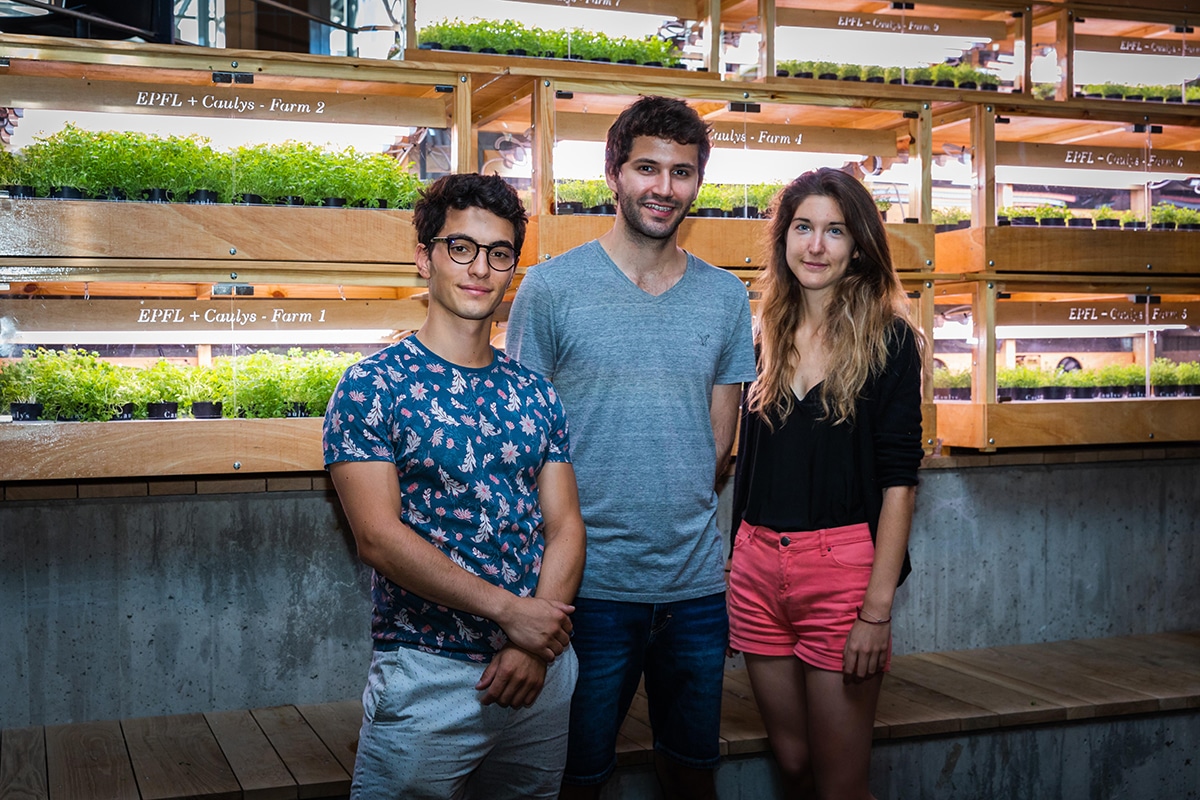An indoor greenhouse is an excellent idea for growing your food. It can be both a relaxing hobby and a great way to provide nutrition for the whole family or customers.
Two EPFL Master’s students have recently launched a startup, ‘Caulys’, to market their smart indoor greenhouses and installed prototypes. The students have co-developed a technology that allows people to grow their small garden right in-home or office.
Intending to bring agriculture downtown, the startup’s systems are modular in design and operate autonomously. You can grow fresh fruits and veggies anytime you need them. Be ready for simple, beautiful, and sustainable indoor gardening at its finest.
Further benefits: it diminishes the need for plastic packaging, pesticides, and GMOs – and prevent the carbon emissions associated with shipping food over long distances. They also improve food traceability.
Sensors and LEDs grow lights provide your plants with the energy they need to thrive. In terms of power consumption, a two-shelf unit should use around 840 kWh a year – the same as two standing halogen lamps; what’s more, as the soil is watered using a closed-loop irrigation system, the greenhouse system use around 95% less water than regular farming strategies.
Tom Lachkar, Caulys’s co-founder and head of business development, and a Master’s student in bioengineering at EPFL said, “There soon won’t be enough arable land left on our planet to feed the whole population. Greenhouses like ours could be used to supplement traditional farms.”
Each system can have up to four shelves. Plug your greenhouse, insert your choice of fertile soils, fill the water tank, and site back to see your plants grow. However, you will need to add fresh water to the reservoir occasionally.
Tom Lachkar, Caulys’s co-founder and head of business development, and a Master’s student in bioengineering at EPFL said, “There soon won’t be enough arable land left on our planet to feed the whole population. Greenhouses like ours could be used to supplement traditional farms.”
“The start-up has carried out a first Life Cycle Analysis. The results obtained are very encouraging; the use of Caulys greenhouses would allow us to consume fruit and vegetables with a lower CO2 impact than the majority of the circuits currently used.”
The invention has already won them the Young Entrepreneur Prize, which included CHF 10,000 in prize money, and an XGrant, also worth CHF 10,000. Caulys, based at UniverCité in Renens, is supported by Genilem and joined MassChallenge Switzerland acceleration program in 2018.

